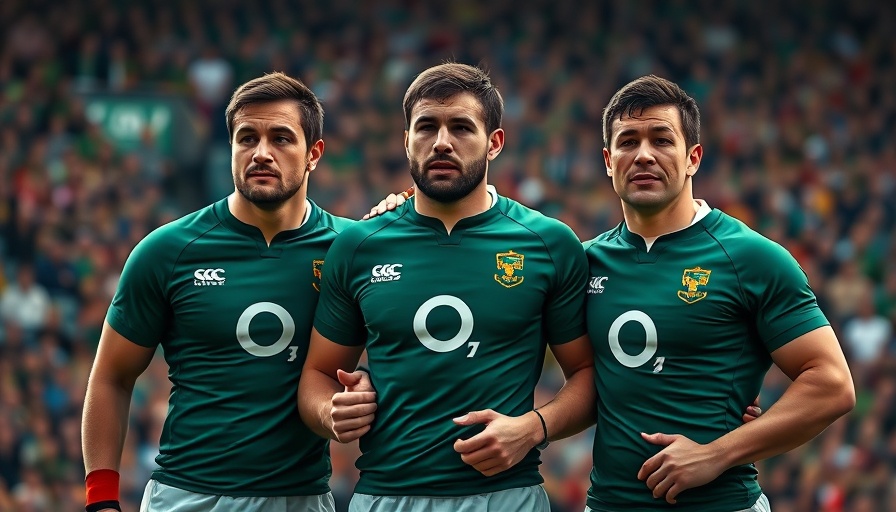
A Second Chance for Rising Stars
South African rugby is abuzz with anticipation as head coach Rassie Erasmus throws a lifeline to talented hookers during the first Bok alignment camp set for next week. With seasoned athletes like Bongi Mbonambi and Malcolm Marx leading the way, Erasmus faces the critical task of shaping the future of the Springboks as they prepare for upcoming challenges, particularly the 2025 Rugby World Cup.
The Age Conundrum in Hooker Selection
As the team evolves, the age of players is a pertinent concern. Mbonambi, at 36 during the World Cup, has been a solid choice, starting in 8 of 9 Tests last year. Contrastingly, Marx, aged 30, showcased his versatility in 2024, making 10 appearances off the bench. Erasmus noted the importance of balancing experience with youth, as the likes of Andre-Hugo Venter and Jan-Hendrik Wessels enter the fray after successful debuts last season. Forgotten talent Joseph Dweba is keen to re-establish himself, while another debutant, Johan Grobbelaar, adds to the competition.
Emerging Players Under the Spotlight
With focus shifting towards nurturing talent, Erasmus emphasizes the potential within his squad. He has high hopes for newcomers Andre-Hugo and Wessels, labelling them as 'fantastic talents.' The inclusion of utility forward Deon Fourie, who made a dramatic comeback after recovering from a knee injury, adds depth and experience. The coach’s backing of older players while integrating youthful vigor lays the groundwork for a dynamic and competitive future.
What’s Next for the Springboks?
Erasmus’ approach to succession planning has sparked discussions around player longevity. He asserts that one cannot merely select players based on anticipated retirement timelines but rather on their current performance and importance to the team. He rightly points out how unfair it would be to exclude seasoned players like Fourie, who still display formidable skills, just because of their age.
A Broader Perspective on Rugby Development
This situation mirrors broader themes within sporting cultures, where the balance between experience and youth often dictates team success. Just as the Springboks are tasked with finding a way forward, other national teams are also nurturing upcoming athletes, indicating the need for strategic foresight in sports. Fans and scholars of the game are encouraged to consider the implications of age in sports both in South Africa and globally.
Conversations Worth Having
The narrative surrounding player age and readiness invites deeper reflection on the nature of athletic careers. Should longevity be celebrated, or is there a time to step aside for fresh talent? As fans gear up for the upcoming season, such questions loom large, illustrating that sports share parallels with life in their demand for resilience, adaptability, and strategic thinking.
Call to Action
The evolving dynamics within the Springbok squad presents a unique opportunity for fans and stakeholders to engage actively in discussions about team selections, player development, and rugby’s future in South Africa. Are you ready to be a part of this journey? Join us in supporting our players and following the developments as they unfold in the lead-up to the 2025 Rugby World Cup!
 Add Row
Add Row  Add
Add 




Write A Comment